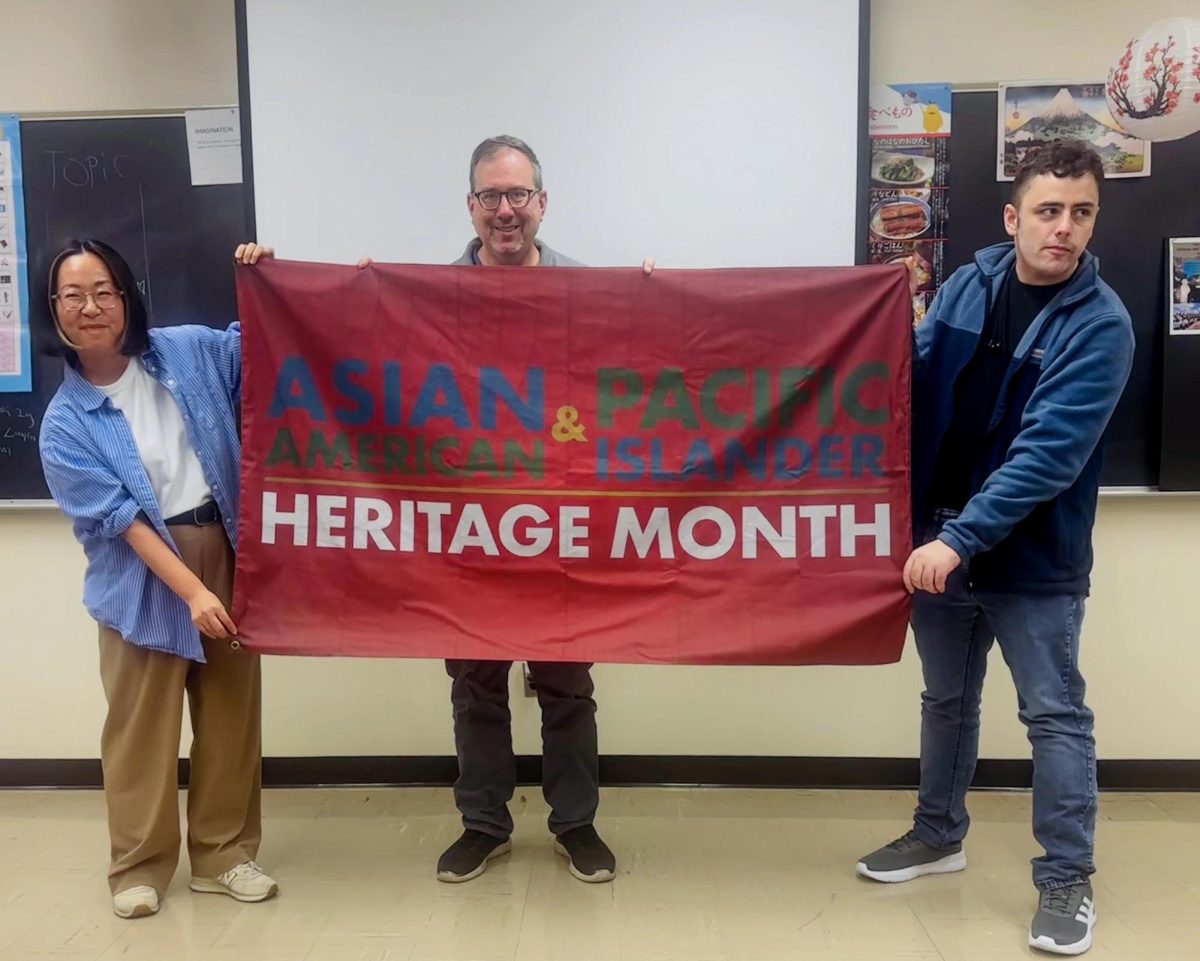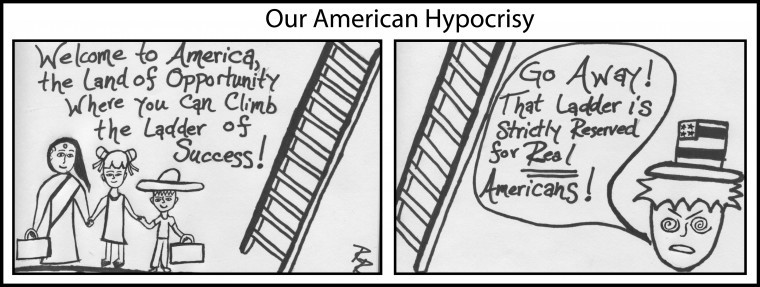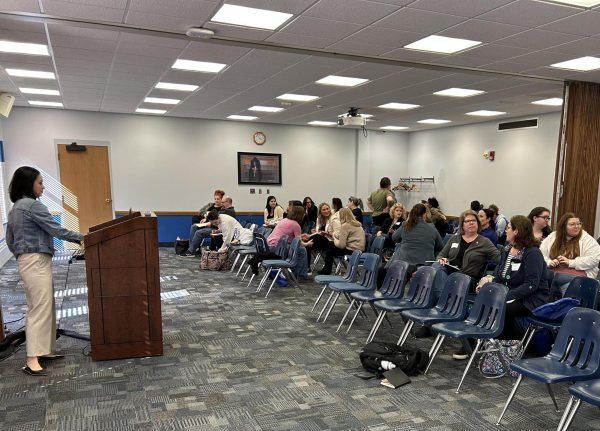Editorial Cartoon: American Hypocrisy
Jay Shinde pushed the limits of religious tolerance while speaking about spiritual diversity and pluralism during his lecture on Monday.
“Visualize that which you love,” said Shinde, an accounting professor, kneeling barefoot on the stage of the 7th Street Underground in the Martin Luther King Jr. University Union.
The professor invited the audience to meditate briefly with him. He said he wanted the students to experience what it means to reach inner peace.
“The goal is perfection,” Shinde said. “It does not matter if you are Christian and perfection is reaching God, or atheist and reaching perfection within yourself.”
Shinde began his presentation by asking Muslim audience member, Shahmir Haq, which spiritual path he identified with.
Shinde said spiritual pluralism is a form of acceptance that goes beyond tolerance.
“Pluralism is actually talking with them, finding out what his path means, seeing some good in his path, seeing that every path could have something good and encouraging him to do well on that path,” Shinde said.
The presentation focused primarily on the teachings of seven religious paths.
From each path, Shinde spoke on three quotations from those religions’ key books, with the exception of the Islamic religions, which were referenced seven times each.
Sarah Englert, a senior geography major, said the presentation was different than she expected.
“I think it gave a different perspective,” Englert said. “It always leads me to believe that everyone believes their own thing.”
Among the variety of religious views discussed, was Shinde’s own belief in Sufism.
“It’s a path you follow by loving the creator and loving the creation,” Shinde said.
He summarized Sufism as a universal understanding and acceptance that each religious path is led with good intentions.
This take on spiritual pluralism appealed to certain audience members.
Karanda Marshall, a junior philosophy major, said she did not expect the discussion to be so informative.
“I hadn’t heard of Sufism itself so I found that interesting,” Marshall said. “It just felt comfortable.”
Alternatively, Englert said she questioned the attainability of absolute tolerance due to sinful nature of people.
“I think that would be ideal, but not possible in the world,” she said.
Shinde will speak again on Oct. 15.
He said his next presentation will introduce more specific ways to reach inner peace and resolve conflict.
Whether or not students agreed with Shinde’s views, he said he encourages them to continue their spiritual growth by accepting others.
“I want to challenge you to go back and find more,” he said. “Don’t take my word.”
Katie Smith can be reached at 581-2812 or kesmith2@eiu.edu.







![[Thumbnail Edition] Charleston High School sophomore Railyn Cox pitches the ball during Charleston's 8-7 win over Flora High School on Monday, March 31.](https://www.dailyeasternnews.com/wp-content/uploads/2025/04/SBHS_01_O-1-e1743982413843-1200x1023.jpg)
![[Thumbnail Edition] Eastern Illinois softball senior infielder Briana Gonzalez resetting in the batter's box after a pitch at Williams Field during Eastern’s first game against Southeast Missouri State as Eastern split the games as Eastern lost the first game 3-0 and won the second 8-5 on March 28.](https://www.dailyeasternnews.com/wp-content/uploads/2025/04/SBSEMO_11_O-1-e1743993806746-1200x692.jpg)




![[Thumbnail Edition] Junior right-handed Pitcher Lukas Touma catches at the game against Bradley University Tuesday](https://www.dailyeasternnews.com/wp-content/uploads/2025/03/MBSN_14_O-e1743293284377-1200x670.jpg)
![[Thumbnail Edition] Senior Foward Macy McGlone, getsw the ball and gets the point during the first half of the game aginst Western Illinois University,, Eastern Illinois University Lost to Western Illinois University Thursday March 6 20205, 78-75 EIU lost making it the end of their season](https://www.dailyeasternnews.com/wp-content/uploads/2025/03/WBB_OVC_03_O-1-e1743361637111-1200x614.jpg)







































![The Weeklings lead guitarist John Merjave [Left] and guitarist Bob Burger [Right] perform "I Am the Walrus" at The Weeklings Beatles Bash concert in the Dvorak Concert Hall on Saturday.](https://www.dailyeasternnews.com/wp-content/uploads/2025/03/WL_01_O-1200x900.jpg)
![The team listens as its captain Patience Cox [Number 25] lectures to them about what's appropriate to talk about through practice during "The Wolves" on Thursday, March 6, in the Black Box Theatre in the Doudna Fine Arts Center in Charleston, Ill.](https://www.dailyeasternnews.com/wp-content/uploads/2025/03/WolvesPre-12-1200x800.jpg)

















